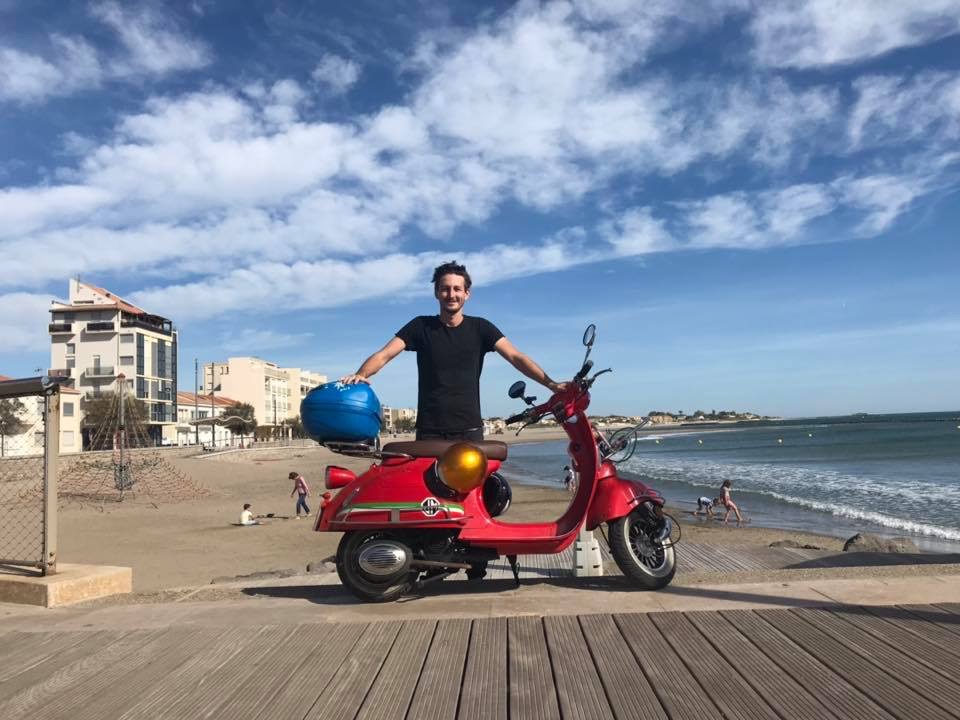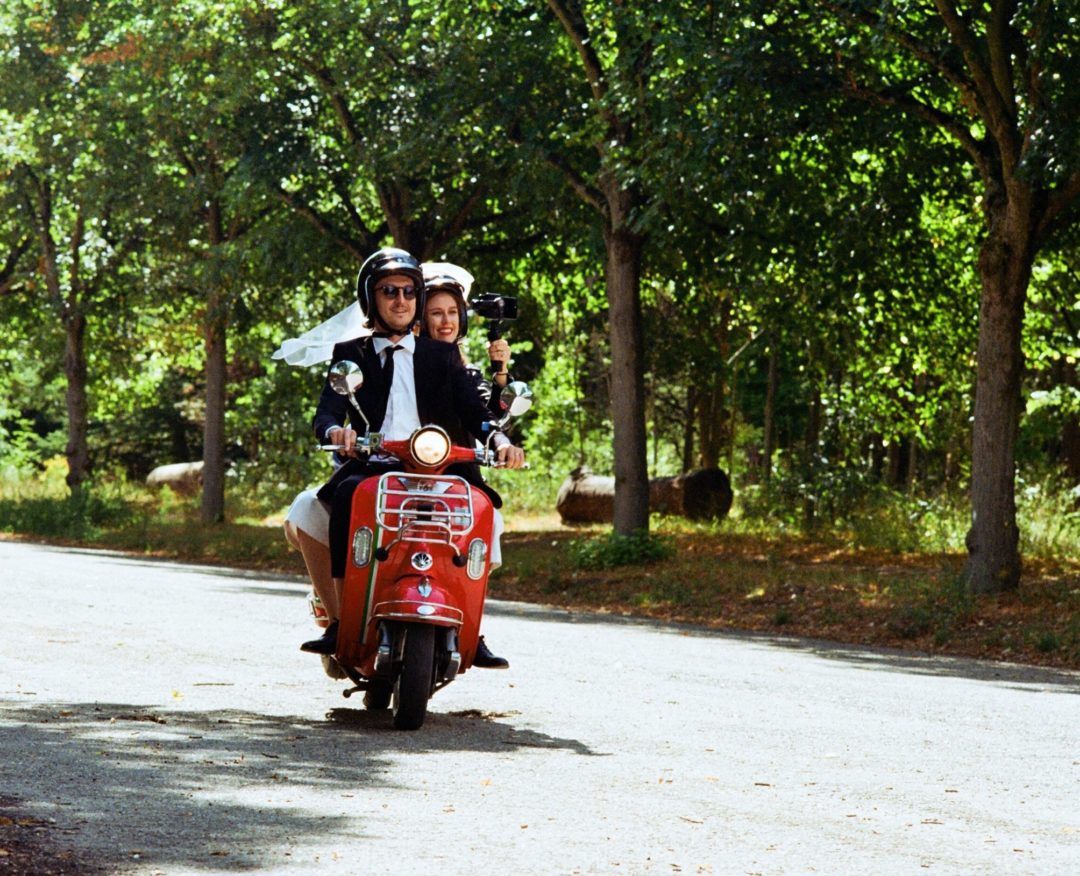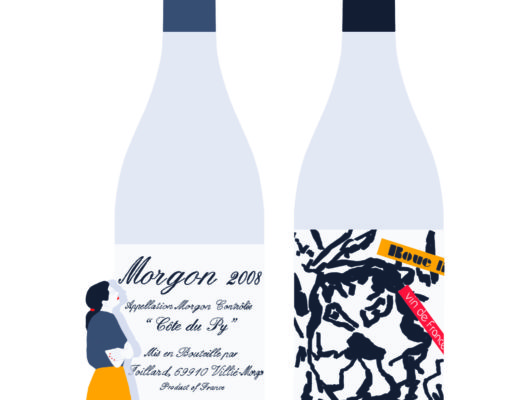Podcaster Oliver Gee is midway through a massive scooter ride across France with his wife. He says the unusual experience has skyrocketed his French skills. Here’s how…..
There’s no better way to improve your French than to drive through 200 French villages. Preferably on a little red scooter. And I should know, because I’ve just done exactly that.
Now let’s put a few things in perspective before I share the story with you. When I left Paris on this honeymoon adventure six weeks ago, I spoke about a 7/10 French. Now I’d give it a 9/10. A 10/10, for the record, would be another foreigner who speaks French fluently (let’s face it, few of us are ever going to match the natives at their own game).
And why? Because it’s hard to improve your French in Paris. As soon as a Parisian smells a native English-speaker’s accent, they love to switch to English. To make matters worse, it’s criminally easy to befriend fellow immigrants – especially if you don’t have a French partner – and to languish forever in your native language.
But this doesn’t happen in the French countryside. For one thing, people in small French villages typically speak less English than their distant Parisian neighbours. And on top of that, they’ve got a lot more patience than Parisians to allow you to get through whatever you’re trying to say.
And then, perhaps most importantly, actually living through daily life and struggles in the French villages catapults you way past the boulangerie-level French you may be used to speaking in Paris.
For example, I wish I’d never had to learn the translation for maladie de lyme (Lyme Disease) but that was exactly the diagnosis of my doctor in La Sourn.
The deputy mayor of Castelmoron d’Albret, the smallest village in France, went scrambling for his thesaurus to explain what he meant when he called me “malin” (which meant, it turned out, something between clever and smart-alec).
Further south near Toulouse, a woman gave me my first glimpse of the famous southern twang when she offered me what sounded like “peng”, but which turned out to be “pain” (bread). Everywhere else it’s pronounced puh, but not in the southwest. I’m still getting used to it.
And I had no idea how how to talk about brake pads on a scooter until mine failed somewhere near La Rochelle. They’re called les plaquettes de frein, in case you ever need to know too. And it was two wheat farmers who came to the rescue, telling me they’d never met an Australian and wanted to know about life on the other side of the world.
In short, the best way to improve your French is obviously to use it, which can be harder than you’d think in a big city like Paris. But my advice: Take on an adventure, add a dash of danger and a hint of romance, and you’ll find a willing and attentive audience across the French countryside. Just remember to clean your brake pads.

Oliver Gee runs The Earful Tower podcast. He’s currently halfway through his honeymoon trip and he’s podcasting every step of the way. Join him for the next 2,500 km by following on Facebook and listening to his show HERE.











